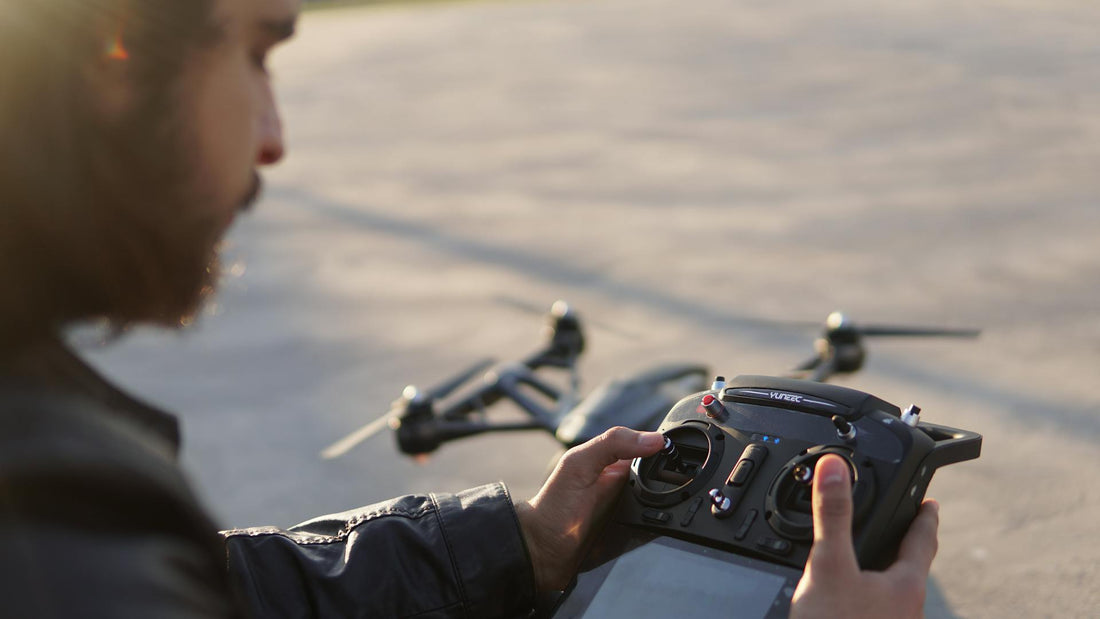
The Fastest Way to Get Certified for Commercial Drone Work in NZ
Share
The commercial drone industry in New Zealand is experiencing rapid growth, with opportunities spanning from aerial photography and surveying to agricultural monitoring and infrastructure inspection. For aspiring pilots looking to enter this lucrative field, understanding the certification process is crucial for launching a successful career in commercial drone work.
Understanding New Zealand's Drone Regulations
Before diving into certification requirements, it's essential to understand that drone work in New Zealand is governed by the Civil Aviation Authority (CAA). The regulatory framework distinguishes between recreational and commercial operations, with commercial work requiring specific certifications and adherence to strict safety protocols.
Commercial drone operations fall under Part 101 and Part 102 of the Civil Aviation Rules, depending on the complexity and risk level of your intended operations. Most commercial pilots will need to obtain certification under Part 102, which covers standard commercial drone activities.
The Streamlined Certification Path
The fastest route to commercial drone certification involves three key components: obtaining your ReOC (Remotely Piloted Aircraft Operator Certificate), securing an appropriate pilot licence, and completing required training programmes.
Step 1: Assess Your Operation Type
Begin by clearly defining your intended commercial activities. Low-risk operations such as real estate photography may qualify for a basic ReOC, whilst more complex operations like beyond visual line of sight (BVLOS) flights require advanced certifications. Understanding your operational requirements upfront prevents delays and ensures you pursue the correct certification pathway.
Step 2: Choose Accelerated Training Programmes
Several CAA-approved training organisations throughout New Zealand offer intensive certification courses designed for rapid completion. These programmes typically combine online theory modules with practical flight training, allowing dedicated students to complete certification within 2-4 weeks rather than months of self-study.
Look for training providers that offer integrated packages combining pilot licence training with ReOC application support. This approach streamlines the process and ensures all requirements are met simultaneously rather than sequentially.
Step 3: Prepare Documentation Efficiently
Gathering required documentation often creates bottlenecks in the certification process. Prepare your application materials early, including proof of citizenship or residency, medical certificates, and detailed operations manuals. Many training providers offer templates and guidance for creating compliant documentation, significantly reducing preparation time.
Fast-Track Tips for Success
Leverage Technology: Utilise CAA's online application systems and digital submission processes to eliminate postal delays. Most applications can be submitted electronically, with faster processing times than traditional paper submissions.
Consider Location Strategy: Training availability varies across regions. If you're flexible with location, this can shave weeks off your timeline.
Plan for Practical Assessments: Book practical flight assessments immediately upon completing theory components. High-demand periods, particularly summer months, can create scheduling delays if not planned appropriately.
Investment and Timeline Expectations
Budget approximately $3,000-$8,000 for comprehensive certification, depending on your chosen training provider and operational complexity. Whilst this represents a significant investment, the growing demand for commercial drone work in industries like construction, agriculture, and media often provides rapid return on investment.
The absolute fastest certification timeline ranges from 14-21 days for simple operations, though 3-4 weeks is more realistic for most commercial applications. This timeline assumes full-time dedication to the certification process and immediate availability of training slots.
Launching Your Commercial Operations
Once certified, successful entry into drone work in New Zealand requires strategic business planning. Consider specialising in high-demand sectors such as infrastructure inspection, agricultural monitoring, or emergency services support. Building relationships with potential clients during your certification process can provide immediate work opportunities upon qualification.
The commercial drone industry in New Zealand offers exceptional opportunities for certified pilots. By following this streamlined certification approach, you can minimise time to market and begin capitalising on this growing industry quickly and efficiently.
What’s next? See which online drone training courses are right for you.



